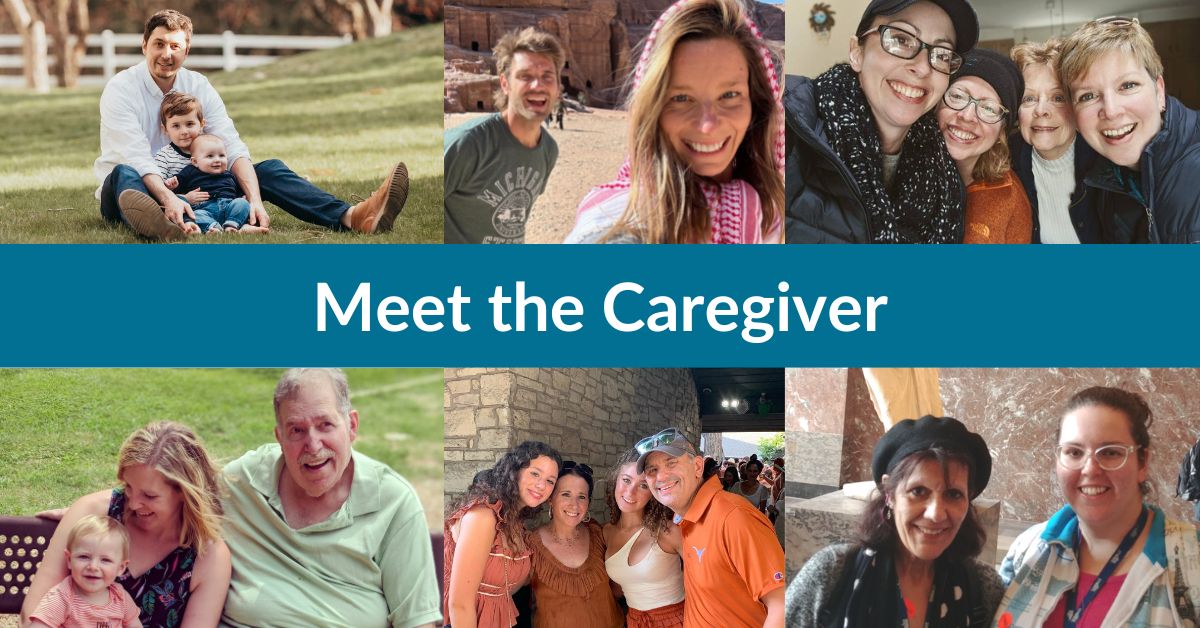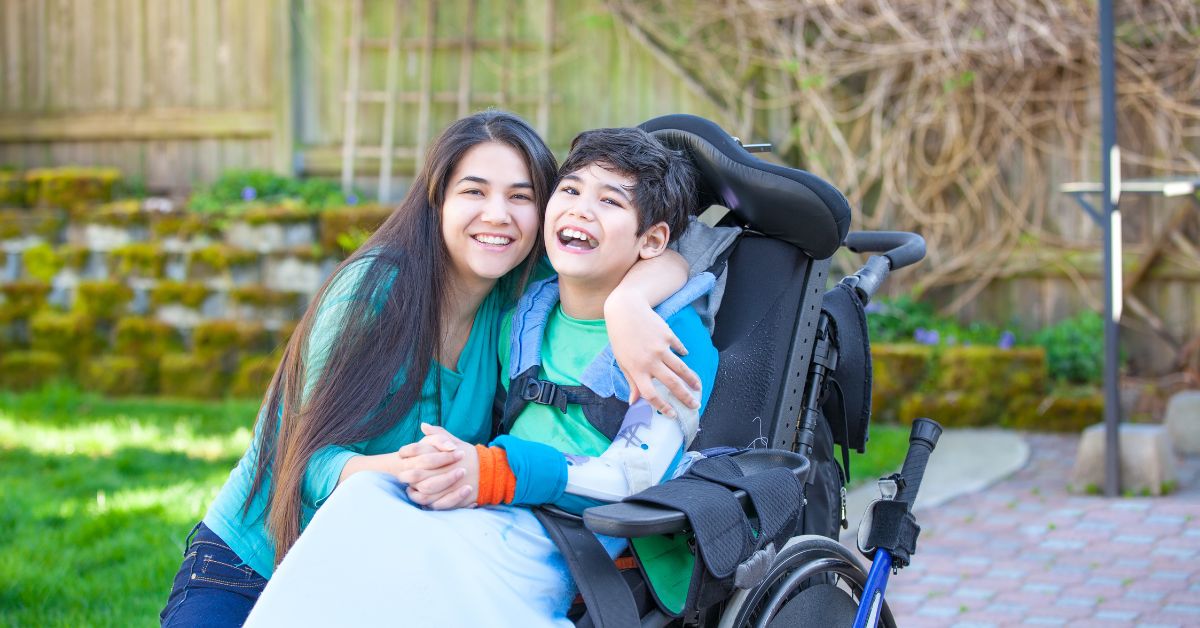Meet the Caregivers: 6 Life Lessons from our Employee Caregivers

Every organization is full of family caregivers.
Their situations vary, as do their responsibilities. Some don’t even realize they’re caregivers. Too often, their challenges remain invisible. Stress builds, and these caregivers struggle to perform their best at work or at home.
That’s why we spoke to our family caregivers about their challenges, triumphs, and insights. Because when we share our personal caregiving journeys, we create a safe space for others to do the same. We encourage happier workforces and healthier lives. Most importantly, we help employees get the support they need to be their best selves at home and at work.
Join the caregiving conversation below.
Emotional labor is still labor.
Aimee Gindin—SVP, Marketing—Caregiver to her son
The biggest thing I’m learning is emotional labor is still labor. Whether you are at work or caring for a family member or doing the dishes, there are many definitions of work and labor and they all take from our total energy source. Emotional labor is one more form of labor, and caregivers are often in very emotional circumstances.
There’s only so much energy a working caregiver has each day. And if family is taking up a lot of their energy that means they have less to spend at work. So if someone on a team is going through a really emotional caregiving journey, they might not be performing their best. Managers need to be sensitive to that and offer support before judging their performance.
Dancing with uncertainty.
Carolyn Romano—VP of Torchlight Product—Caregiver to her mom
A few years ago, my mom Dorothy suffered a sudden brain aneurysm. The emergency surgery she required the following day involved threading a platinum wire from her leg all the way through her body to her brain. It was a difficult experience for her, of course, and also for my sisters and me as her caregivers. We had already lost our dad years before, and the overwhelming uncertainty of whether our mom would survive the surgery and weeks-long recovery put us all into a bit of “orphan panic.”
When you’re a caregiver, there is this ongoing dance with uncertainty that isn’t given the attention it deserves. Learning how to hold uncertainty, manage it, put words around it, is challenging in a culture that doesn’t do a great job talking about illness and death. Yet, managing uncertainty is key to navigating our roles as caregivers. One strategy that I have found helpful is keeping myself in the present moment. I can’t do anything about what’s already happened, and I can’t control a future I cannot see. What I can do is be right where I am helping, loving, impacting. Truly, the point of power for us caregivers is in the present moment.
P.S. Mom and her platinum wire are doing just fine!
The million meanings of caregiving.
Mike Ricciardelli—Senior Manager of Sales Development—Caregiver to two boys
What I’ve learned is there is no schedule. Caregiving is not linear. It’s totally unpredictable. We could have a great week and then a really challenging one. All of a sudden, my wife and I are scrambling to balance working from home together with who’s going to pick up a kid from school because they’re sick. Having flexibility at work—that’s huge.
A lot of people don’t identify as caregivers when they really should. Caregiving can mean a million different things to a million different people based on their own experiences. In my own case, there are still a ton of caregiving responsibilities that come with two healthy boys who are under the age of six.
There is no playbook.
Stacie Vanags—Sales Director—Caregiver to her husband
My husband has lung cancer. He’s a non-smoker with no family history of the illness. My role is more emotional caregiving. He’s doing well, thankfully, and so it’s much more emotional caregiving than physical caregiving. But there’s no protocol. No one has a playbook to say here are steps one, two, and three.
I’m super lucky to be working here. I had time off to just read as much as I could about what we could do; how we could help him nutritionally, mentally. The power of food is no joke. And I had more energy to do this than he did.
I actually have a lot of cancer in my family, so I was always mentally prepared that it would run genetically. For it to hit him instead…neither of us were prepared for it. It felt pretty unfair. Then I realized, maybe that was it all along. Maybe I was preparing myself for this.
Humor is essential.
Laura Taylor—Social Media Manager—Caregiver to her mom
My mom lives with multiple sclerosis.
The hardest part is watching someone who raised me deteriorate. When you get older, it takes a while to realize you’re watching your parents get older too and start to decline. And she can get emotional because she used to do a lot of things for me and my brother that she wouldn’t be able to do now.
That’s why you need humor as a caregiver. If we’re not laughing, then we’re going to be crying. I can’t waste energy getting frustrated, I just have to enjoy spending time with my mom on this journey. And it is exhausting. But she’s very stubborn. And that kind of determination is inspiring because she isn’t letting MS slow her down. She’s managing it.
Start your day right.
Amy Antonacci—VP of Client Services—Caregiver to her kids
I’m a caregiver to my kids and my family. It can be really hard to attend to everyone’s needs. I might have one daughter who needs to get picked up from tennis while another needs to go meet a friend for lunch. Maybe my husband’s at a doctor’s appointment and the dog just had surgery.
When you have that much going on, you can’t give 100% to everything. As a result, you feel like you’re coming up short in everything.
To manage all my responsibilities, I have to get my day started properly. I need to give myself time in the morning before the kids are up to ground myself. That could mean getting outside and taking a walk, not checking emails first thing in the morning.
These caregivers are not alone.
Every organization is full of family caregivers like these managing their own unique life challenges. Their challenges aren’t always visible at work, but that doesn’t mean those challenges disappear when they turn on their laptops.
By creating safe spaces to discuss caregiving challenges, we help family caregivers get the support they need to succeed at work and at home.



